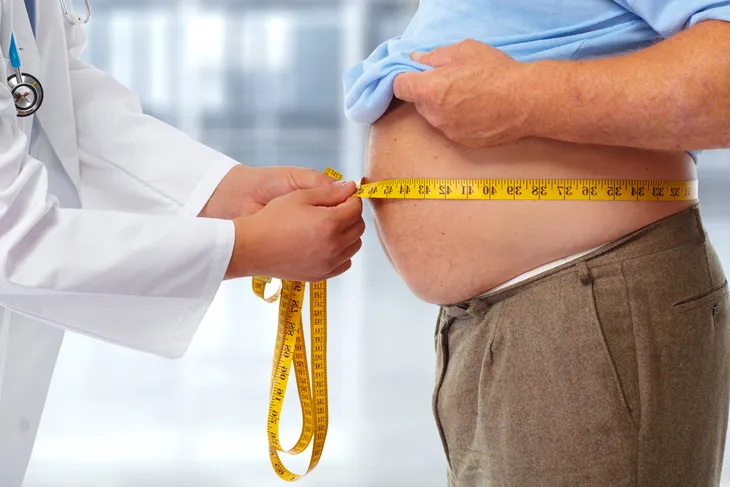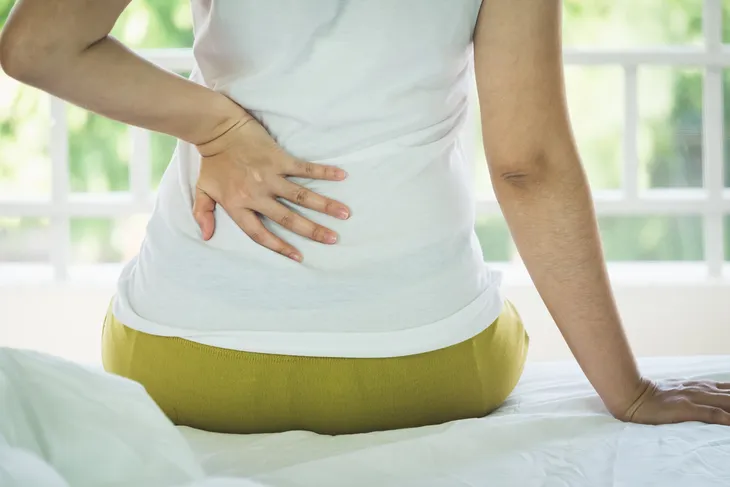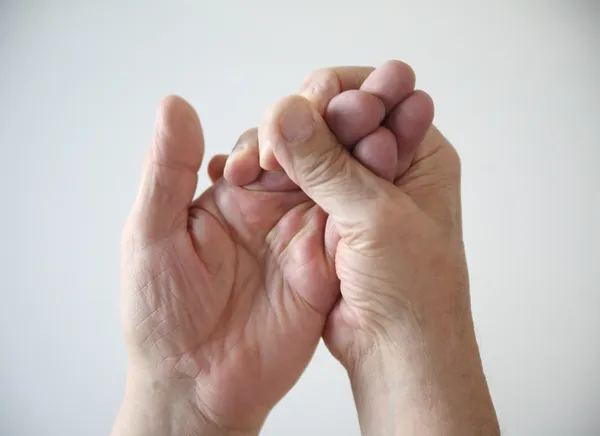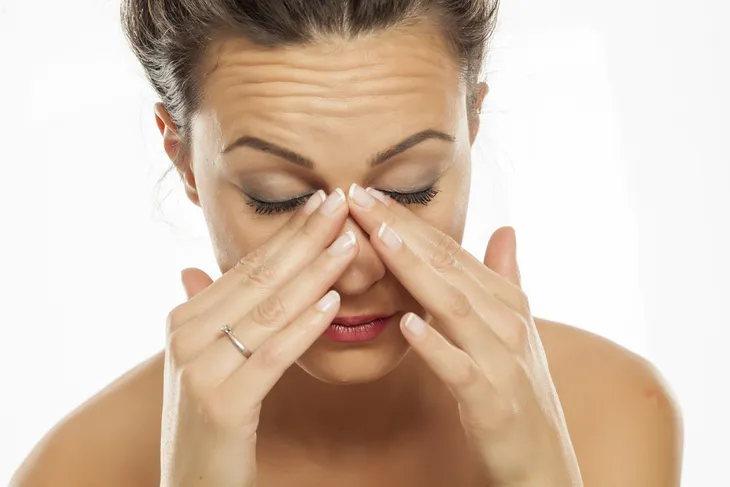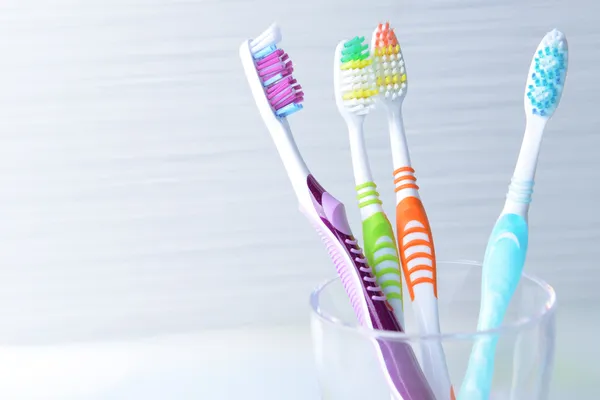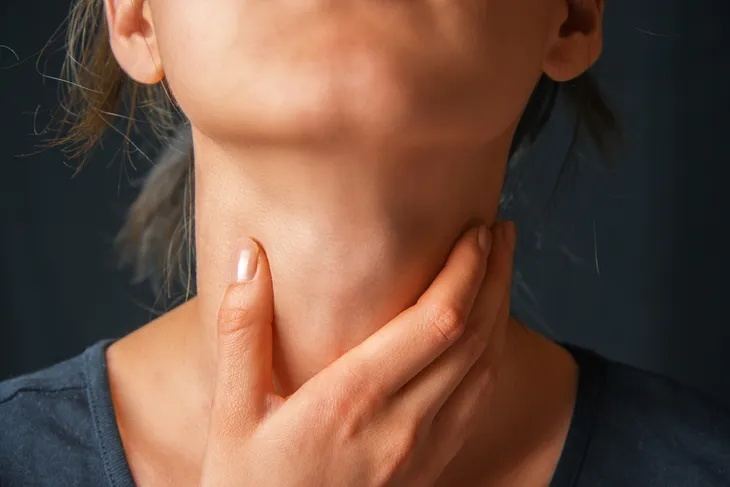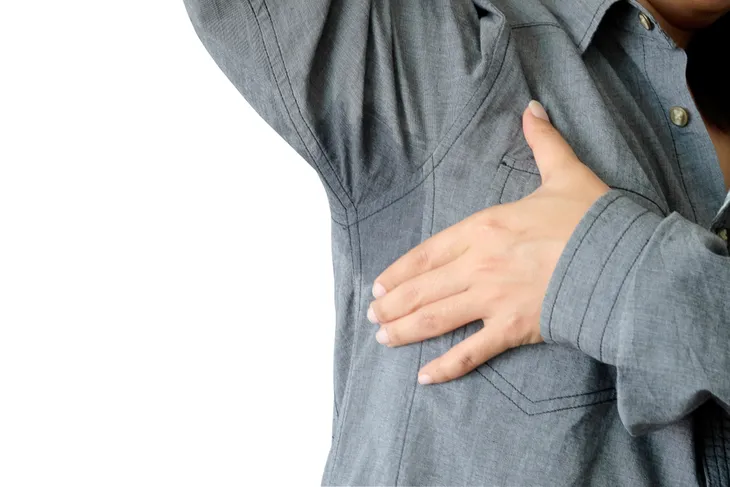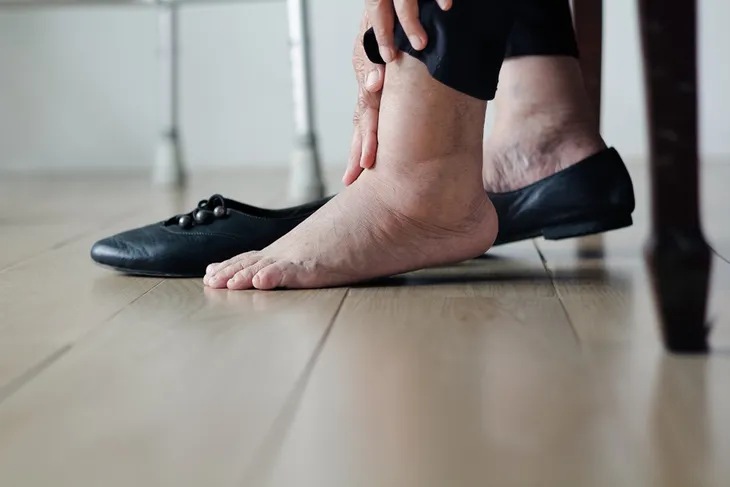They say when the mind suffers the body cries out, and there’s truth based in medical science. Problems with mental health can affect your physical health in adverse ways, and in some cases a chronic health condition can cause mental problems such as depression.
Studies have shown that mental illnesses can manifest themselves in a variety of ways physically, as well as changing behavior (risk-taking and improper diet) that can impact overall health and lead to complications or a shortened lifespan. Here are 15 physical symptoms that may be attached to a mental illness…
Obesity
A post on the U.S. National Library of Medicine website explains that those with severe mental illness (SMI) such as bipolar disorder and schizophrenia may be at higher risk for attaining unhealthy body mass, reading as 30 or higher on a body mass index (BMI).
It adds that those with schizophrenia are up to 3.5-times more likely to become obese, while those with major depression or bipolar disorder are at 1.5-times increased risk for obesity. The weight gain is traced to lifestyle factors such as less exercise, although medications (such as antipsychotics) to treat these illnesses can also be a contributor, notes the post.
Fatigue
The Mayo Clinic says mental illness can be more than just feelings of sadness or distress. They may cause you to feel “significant tiredness, low energy or problems sleeping” according to the source.
Of course, insomnia will likely only lead to feeling more tired. Depression and chronic fatigue syndrome are often mistaken for each other, but can also exist at the same time, points out other sources. It’s important to let a doctor make that call to properly treat it.
Chronic Pain
Those little aches or pains (or worse) can actually be tied to a mental health condition. While pain can cause depression, the feelings of sadness can intensify this pain. As Harvard Medical School points out, “Hurting bodies and suffering minds often require the same treatment.”
The school also notes that those with chronic pain are at 3-times higher risk for developing psychiatric problems, while those with depression are 3-times more likely to develop associated chronic pain.
Tics and Twitches
Tics are said to be a controllable response to an urge to contract muscles, while twitches are generally involuntary spasms. Calm Clinic points to the connection between mental suffering and twitches from anxiety affecting “something as small as a finger or as large as your entire leg.”
The clinic also points out that in many cases, muscle twitches can lead a person to believe there’s a bigger problem, which in turn creates more anxiety. While muscle twitching “is absolutely a sign of anxiety,” in some cases it can suggest MS or nerve damage. If it persists, have it checked out by a medical professional.
Sinus Problems
Psychology Today explains in a 2014 article that chronic sinus issues have been linked to depression. It notes that up to 1-quarter of people with chronic sinusitis–inflammation of the sinuses–also are affected by depression.
Sinusitis itself can be troublesome, as it causes feelings of always being “stuffed up” or causing pressure in the facial area. This is another case where depression can trigger a physical ailment, which in turn intensifies your feelings of sadness, making the ailment tougher to cope with.
Nausea
Feeling sick to your stomach often may be a sign that your mind is not doing its best, according to a ScienceDaily release. The post, which is now more than a decade old, explains that people who are susceptible to nausea should get checked out for anxiety or depression before aggressive treatments for gastric problems are used.
The findings were based on a study in Norway involving 62,000 subjects. Forty-eight percent of respondents noted they had some gastrointestinal complaints, and nearly 13-percent had nausea during the first year. ScienceDaily writes, “Those who reported symptoms of nausea were more than three times as likely to also have an anxiety disorder, and nearly one-and-a-half times more likely to suffer from depression.”
Weight Loss
In contrast to obesity, it is not uncommon for individuals with mental illnesses such as depression and anxiety to lose weight without even trying. Individuals with anxiety and depression disorders often lose the desire they once had for things they find enjoyable – even food.
Psychiatrist Keith Humphreys, MD at Stanford Health Care states that disorders like depression often disrupt our hormones that tell us when we are hungry and when we are full. Some individuals may not receive signals of hunger when suffering from depression.
Headaches
A study done by General Hospital Psychiatry found that migraines and mental illnesses such as depression and anxiety disorder are highly related. The study found that both migraines and mental disorders show low activity of enzymes that are responsible for deactivating certain chemical messages to the brain.
Frederick Taylor, MD, found that depression and anxiety affect 83 percent of individuals who suffer from migraines and severe headaches.
Irritated Skin
A study done in Norway in the Department of Adult Psychiatry at the Aalesund Hospital, found that low levels of omega-3 fatty acids in females are associated with both depression and eczema.
However, the reason that depression or anxiety may cause conditions like eczema or acne to worsen is actually due to the fact that mental illnesses increase stress which releases the stress hormone cortisol. WebMD states that Cortisol will result in the skin producing more oil which in turn will produce more acne. Stress may also produce hives, skin rashes or worsen conditions like psoriasis.
Cavities
This next condition is more of a side effect rather than a symptom, but there is a link between depression and cavities. The reason this is a side effect is because individuals suffering from mental illnesses such as depression often find everyday tasks like brushing their teeth rather difficult and potentially skip them altogether.
Also, a study done by the Academy of General Dentistry found that medications used for depression and anxiety may cause dry mouth, cavities and gum disease. Doctors stress the extra importance of oral hygiene for patients taking antidepressants.
Adrenaline Rush
If you’ve ever had an anxiety attack, you know they are absolutely awful! Anxiety attacks are often triggered mentally but felt physically. An article written by nopanic.org.uk, states that, “when the body is very anxious, the nervous system gives a signal to release adrenaline…the body activates the fight or flight response to get us ready to face danger, to run or fight.”
During this surge of adrenaline, individuals will feel their heart rate increase and feel heart palpitations, take shorter and faster breaths, and experience dizziness, chest pains, chills or hot flashes and muscle tenseness to name a few.
Jaw Pain
While you may be experiencing those mysterious aches and pains throughout your body as a result of depression or anxiety, you might also develop a condition called temporomandibular joint (TMJ) disorder.
MedicineNet.com explains this disorder has been linked to these mental conditions through a study by German researchers. The study found that among 4,000-patients, depressive symptoms “were more strongly related to TMJ pain than to muscle pain, while anxiety symptoms were linked with muscle pain.” Mental health conditions can lead to more jaw activity (including teeth grinding) that can cause inflammation and pain, it adds.
Strep Throat
MedicalXPress.com notes people with streptococcal throat infection, which results in a very sore throat that requires antibiotics to clear up, may be at higher risk of having a mental disorder.
The source cites a study out of Denmark that included data for more than one million children – of that number, 638,265 had received a streptococcal test, and 349,982 who had one or more positive test results. The source says the incidence of mental disorders was higher for those who tested positive, especially for OCD and tic disorders.
Unexplained Sweating
Huffington Post says excessive sweating has been linked to mental health, and refers to research from Anhui Medical University in China and the University of British Columbia that shows that people with hyperhidrosis (the medical term for excessive sweating) are more likely to have anxiety or depression than their counterparts without hyperhidrosis.
However, the source is quick to point out that it’s not clear whether the sweating is a result of underlying mental health issues, or if the physical symptoms are triggering the anxiety or depression. Controlling hyperhidrosis won’t necessarily mean you’ll suddenly overcome your mental health challenges, it adds.
Swelling
CalmClinic.com confirms a possible physical symptom of mental health disorders is swelling, but it’s not that simple. “Many people with anxiety complain of swelling, but the actual issue is not what you may think,” it adds.
The real issue is “hypersensitivity,” it adds, explaining that anxiety can cause you to become hyper-aware of any changes in your body. “Hypersensitivity can also cause normal things in your body to feel bigger or larger,” it adds. However, it is possible for anxiety to actually cause swelling, including a swollen liver and mild swelling of joints, it adds.

